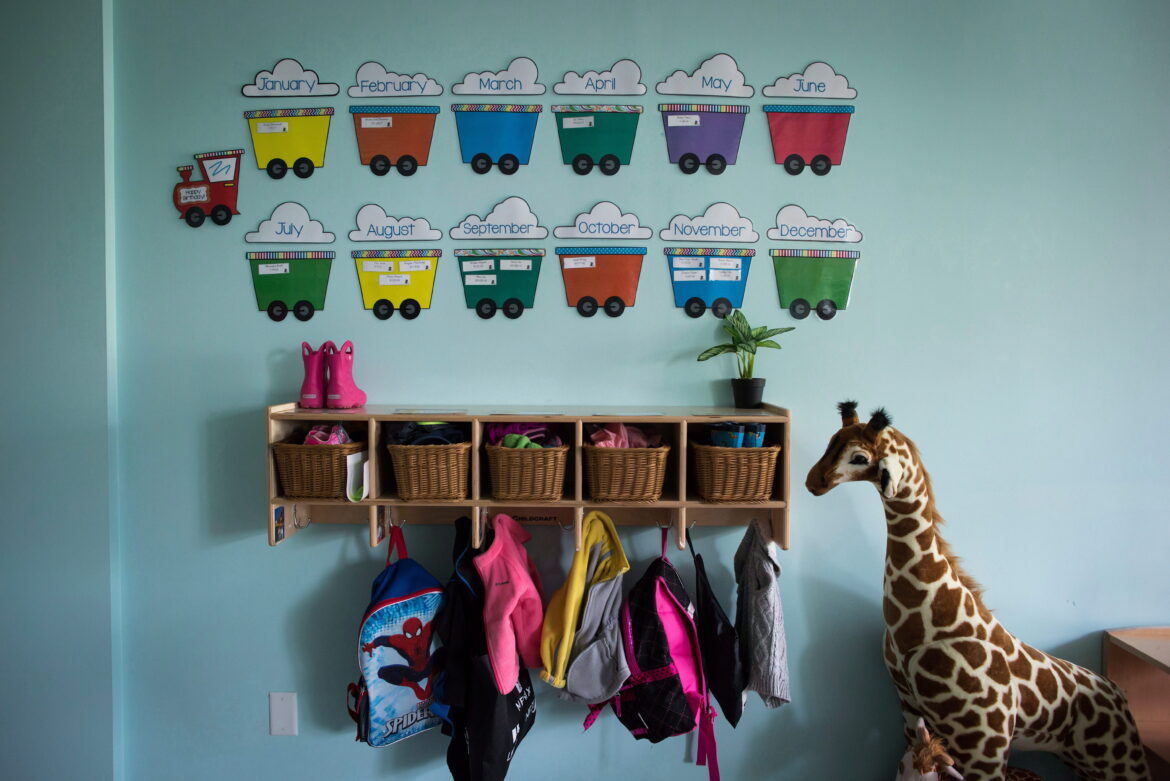By Allison Jones
New federal rules would prevent international students who graduate from early childhood education programs from applying for a work permit in Canada — a change that the Ontario government, colleges and advocates warn will kneecap the growth of Ottawa’s signature $10-a-day child-care program.
Under immigration changes announced last month, the postgraduate work permits, which were widely available in the past, will now be restricted to areas that have labour-market shortages in Canada.
Ontario is facing a shortage of early childhood educators, or ECEs, that some child-care operators say is preventing them from operating at full capacity right now and could stop them from opening new spaces in the future.
Despite that, the only mention of early childhood education in the federal government’s list of categories in which students will continue to qualify for postgrad work permits is “education/teaching of individuals in early childhood special education programs.”
“This federal policy change will make it even more difficult for Ontarians to find affordable child care and no doubt impacts will be felt immediately,” said Marketa Evans, president and CEO of Colleges Ontario.
Internal government documents previously obtained by The Canadian Press through a freedom-of-information request show that the province expects a shortage of 8,500 ECEs by 2026.
Public colleges currently have 5,300 international ECE students enrolled, Evans said, which is about 50 per cent of total enrolments.
Alana Powell, the executive director of the Association of Early Childhood Educators of Ontario, has been seeking clarity about the impacts of the federal changes, and said if international student ECE graduates are excluded from accessing work permits, it will be a blow to the sector.
“We are experiencing a workforce crisis,” she said.
“Ongoing retention and recruitment of early childhood educators in Ontario continues to be a concern, and it’s concern for current operational levels, let alone planned expansion under the $10-a-day system. So to see any sort of barrier in place for bringing more early childhood educators into the workforce is a big problem at a time like this.”
When asked about the apparent omission, Immigration Minister Marc Miller’s office was adamant that ECE programs would be included in the list of those that qualify for postgrad work permits.
“Absolutely, ECEs will definitely be covered,” director of communications Aissa Diop first said three weeks ago, suggesting it was a matter of unclear wording on the government website.
But the changes take effect for students who apply for permits after this Friday, and with the exception of special education, early childhood education programs were still not on the government’s list of eligible study areas as of Tuesday morning.
Ontario’s minister of colleges and universities has written to Miller, warning that early childhood education is not currently eligible, nor are other areas in which the province sees shortages, including hospitality, health-care administration, and automotive technologists.
“Several critical areas are currently missing for Ontario,” Nolan Quinn wrote.
The list appears to have been quietly updated this week to include registered nursing — a change the province hopes signals the federal government is willing to consider more inclusions.
Quinn has asked Miller to more openly communicate any future updates.
It is all leading to a lot of confusion among colleges, which are trying to sort out the impacts on their programs ahead of the new rules kicking in Friday, Evans said.
“Our ask is that it be paused because of all of this confusion,” she said in an interview. “We don’t know if these are errors or intentional omissions and again, I think there hasn’t been that much time to digest.”
When Miller announced the changes, he said the growth in international students and the corresponding postgraduate work and spousal permits are areas where “we owe it to Canadians, and in the context of an economy where the labour market in some areas is constricting, we need to adjust accordingly.”
At the time, Miller also announced he was slashing the number of international student visas by another 10 per cent. That was on top of a temporary cap the government announced in January to reduce the number of new student visas by more than one-third this year, done in part to ease pressure on an already-strained housing market.
Colleges Ontario has raised other sectors it believes the federal government is wrongfully omitting, including engineering technician and technology programs, which Evans says are key to the electric-vehicle industry, and dental hygiene, key to the federal dental-care rollout.





